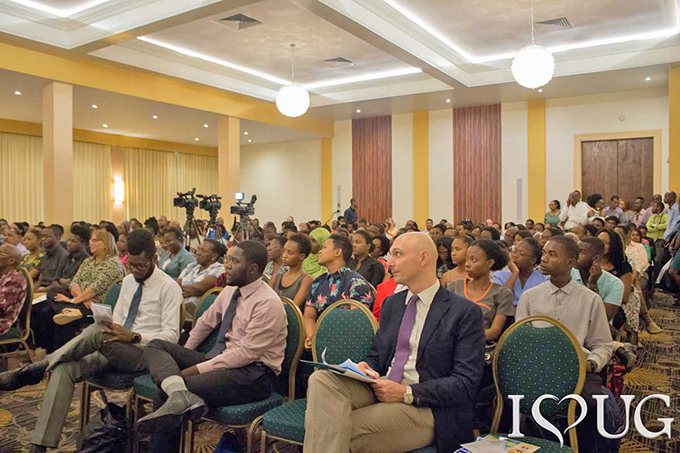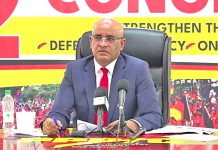10th Turkeyen and Tain Talks
By Jarryl Bryan
Experts are urging Government to do more in combating climate change, and an impassioned case has been made for more inclusion of youths at all facets of policy making, to ensure sustainable long-term development.
This call was particularly made by Engineer Amir Dillawar, one of six panellists at the 10th UG Turkeyen and Tain Talks focusing on climate change.

Dillawar, President of the Guyana chapter of the Caribbean Youth Environment Network (CYEN), lamented the lack of meaningful involvement and representation of youth in the climate change discussion.
He recalled that, some years ago, a declaration entitled ‘Empowering youth to take action on climate change’ was made in 2014 to the Board of Governors of the Caribbean Development Bank, arguing for these rights.
The declaration had called for “youths to be involved in all aspects of deliberations, consultations, and policy making that address the importance of sustainable development to our future as Guyanese and Caribbean youth.”
He noted that CYEN had also called on the Government to promote and incentivise the use of green and sustainable technology, as well as to focus on community-based actions. The declaration, according to Dillawar, had also urged the allocation of resources to vulnerable communities with minorities, in an effort to encourage innovative practices.
“Today, approaching four years later, much of this all is still resounding. Several other calls, such as CYEN’s own ‘Caribbean we want’ declaration, still reverberates. The call still remains one for adequate representation and involvement of youth in the shaping of policies that we will have to live with (in) the future,” Dillawar said.
With advent of the 2030 Agenda for Sustainable Development and its goals, he noted, “the role of young people is clear. Over a third of the Sustainable Development targets highlight the role of young people. Young people, in terms of consumption and technology, are probably the largest market base of consumers in the world. So when it comes to sustainable energy and climate mitigation, the drivers are going to be the young people.”
While the inexperience of youth is often cited, Dillawar lamented that youths are often not afforded opportunity to gain that experience.
Dillawar also stressed that the climate change discussions must be taken out of the academic circles and into communities.
“We have an imperative to ensure that young people gain experience in climate change and sustainable development negotiations. It is imperative that we engage youth from Port Mourant to Port Kaituma; from Albouystown to Alness,”he declared. “We need to take the talk out of the academic circles and into the ground. We need to visit communities and engage youths, because the reality is: 40 years from now, we (youths) are the ones who will be here,” Dillawar stressed, to the applause of the audience.
Youth
Chairperson of the event, Dean of the Faculty of Earth and Environmental Sciences at UG, Dr Paulette Bynoe, acknowledged that youth could indeed make a difference. But she described it as an uphill battle to get youths involved.
Presidential Advisor on the Environment, retired Rear Admiral Gary Best, acknowledged the criticism against the Government’s lack of inclusivity of youth. Facing down questions on the issue, he noted that more can be done.
“The Office of Climate Change doesn’t have a youth department. The big criticism is that there are not enough youths involved in policy and planning. If you go to Article 13 of the Constitution, it talks about all Guyanese being involved in the decision making process,” Best declared.
“We have to create more intersection points where youths can be involved in decision-making. From my perspective, I think it is difficult for decision-makers to recognise the importance of youth involvement,” he explained.
Government has taken much heat over the past months for what some see as its being oblivious to the concerns of youths. A case in point is when, in an unpopular move, it imposed Value Added Tax (VAT) on private education. This move prompted protests in one form or another from youths who argued that the surprise move came without any consultations.
But consultations aside, the Government’s seeming penchant for hiring retirees to top positions has also been criticized by the general public and the political opposition.
The CYEN is a non-profit civil society charitable body that focuses on empowering young people and their communities. Their advocacy is usually aimed at developing programmes to address socio-economic and environmental issues.
Besides Dillawar, the panellists included Dr. Bynoe; Climate Change Specialist Martina Duncan; and Caribbean Community (Caricom) Secretariat Energy Expert Dr Devon Gardner.











